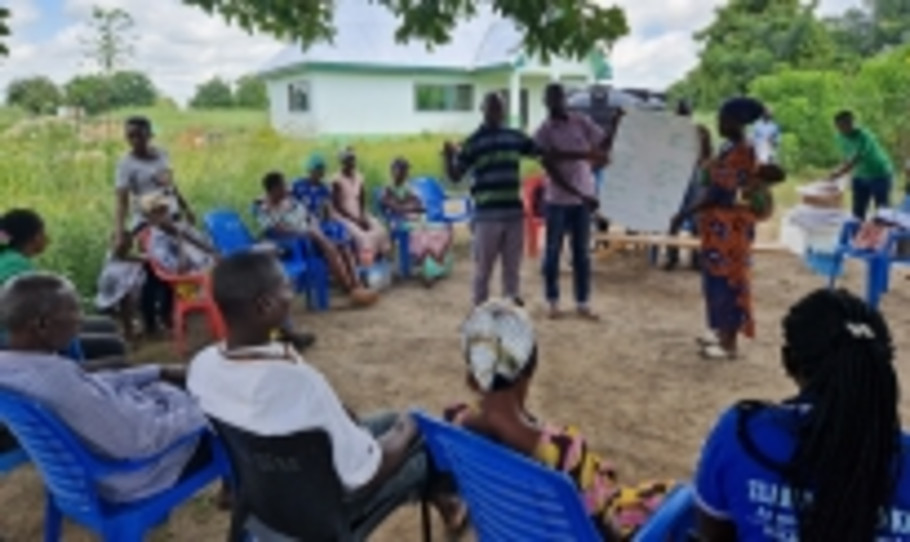
05/12/2024 Les agriculteurs familiaux des pays financés par le FFF participent à une formation sur la résilience climatique afin de renforcer leurs compétences et leur compréhension de l'éventail des mesures climatiques qu'ils peuvent prendre. En plus d'apporter de nouvelles idées, la formation aide les OPFL à débloquer des fonds vitaux pour le climat.
Lire la suite en angalais ci-dessous:
With recent severe droughts in Zambia, forest fires in Bolivia, freak hailstorms in Tanzania and strong typhoons in Viet Nam, climate change is hitting many small-scale farmers hard. But despite being critical to frontline climate action, small-scale farmers are frequently not involved in decisions about climate resilience receiving only 0.3% of international climate finance. They are seldom even aware of all the adaptation actions that they implement and don’t see themselves as climate actors.
That’s why FFF partner, AgriCord, has developed a face-to-face “Building Resilience” training programme to support family farmers in taking climate action. The aim is threefold: to help farmers recognise themselves as key climate actors; to give them visibility of the climate actions they are already taking; and to support them in creating a tailored climate action plan specific to their own situation. This will vary from location to location according to the local issues they face.
Climate action is diverse
What has emerged from the workshops is that all farmers are concerned about the impacts of climate change. Many are already taking action, but often they do not label what they do as “climate action.” To many, climate action means planting trees, and the training helps them to recognise that it is much, much more than that.
For example, it could be installing solar-powered irrigation systems to overcome drought, or employing agroecological practices to improve soil nutrition and crop yield. Or perhaps it could involve using a stronger material for a water channel that always breaks during flooding, or changing how and where a product is sold because more frequent storms are preventing customers from going to the marketplace.
In addition to changes in weather patterns, in all countries, farmers have highlighted a frequent and severe increase in pests and diseases attacking their crops, identifying this as a key climate hazard.
Cascading knowledge
Over the past three years, the workshops have been rolled out to FFF-funded farmers in Tanzania, Kenya, Nepal, Viet Nam, Madagascar, Ecuador, Togo, and most recently in Ghana and Zambia. The idea is to “train the trainer” so that participants then cascade their learning to their own communities – adapting it to share in their own language using examples of crops and activities that are relevant to them. So far, over 2100 farmers have attended the Building Reslience workshops, which build on their existing knowledge and practices.
“Many of the farmers in our women farmers’ organization are illiterate. After taking part in the Building Resilience Train the Trainer week, I feel confident in conducting the training for our members – with some drawings and explanation, the tool can be used also like we did today – sitting outside under a big tree,” said Esther Awuni from Maaltaaba Peasant Women Farmers' Cooperative, who took part in the most recent training in Ghana.
The programme has evolved over time. Early implementation included a training of trainers event for 2-3 days after which attendees arranged their own participatory workshops with local farmers. However, the concepts and the solutions required more time for reflection, so more recent training of trainer events now take 5 days. They start with two days of training (learning, coaching and discussion with flipcharts and pens), followed by a one day field visit to clarify concepts and review examples. The last two days are coached practice in the field to help farmers grow in confidence and independence in applying their knowledge and sharing it with their communities.
Partager :